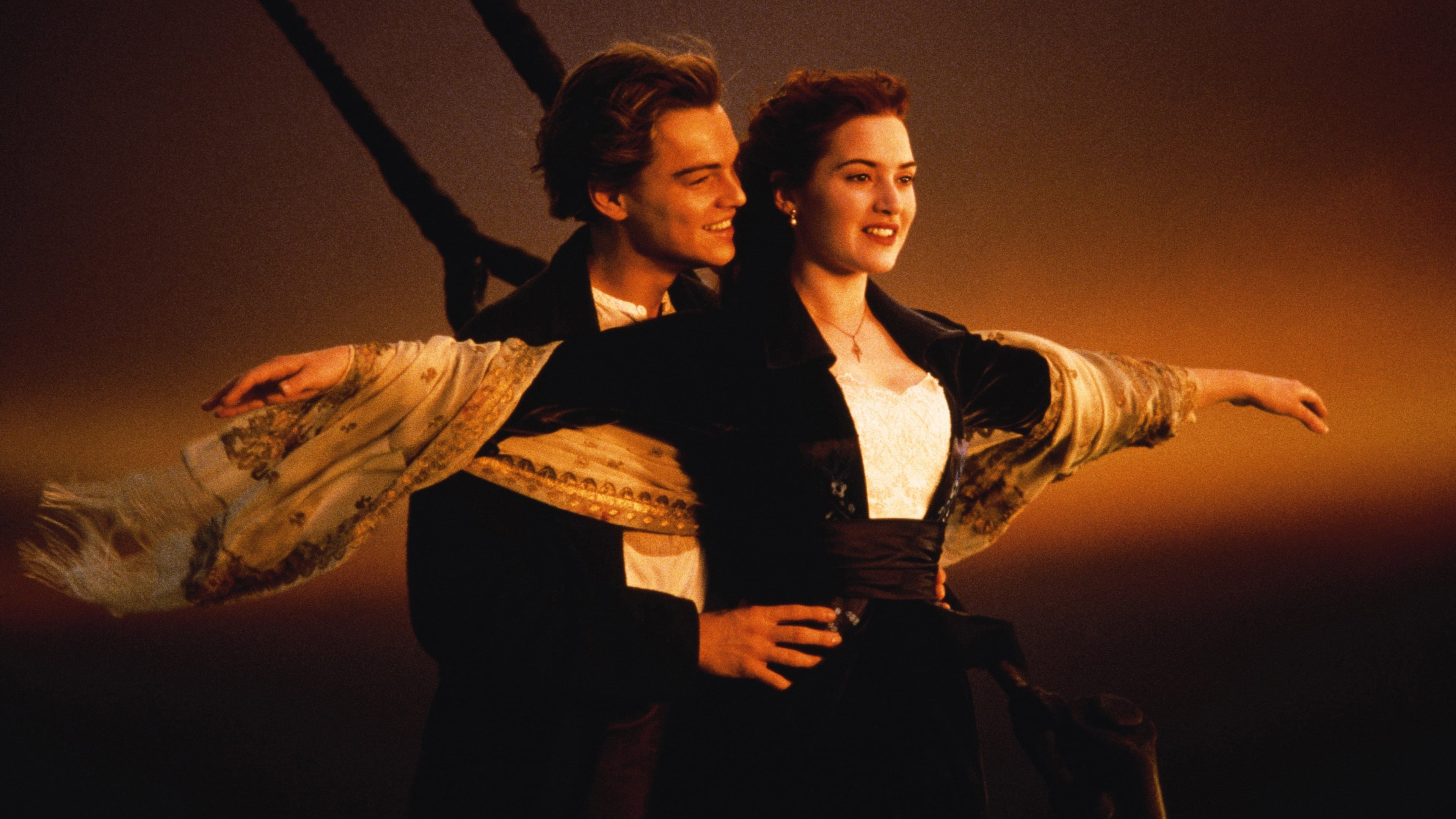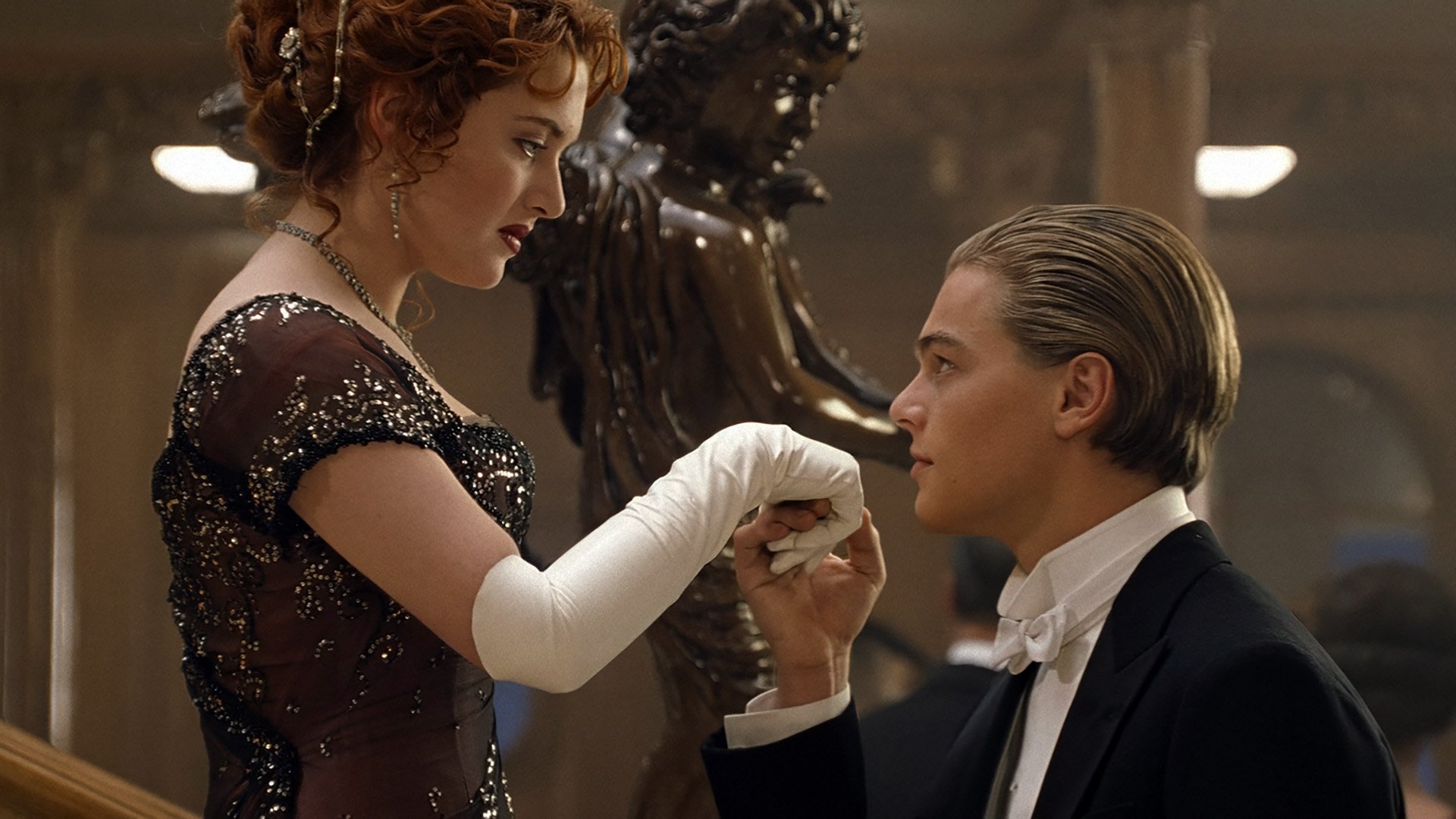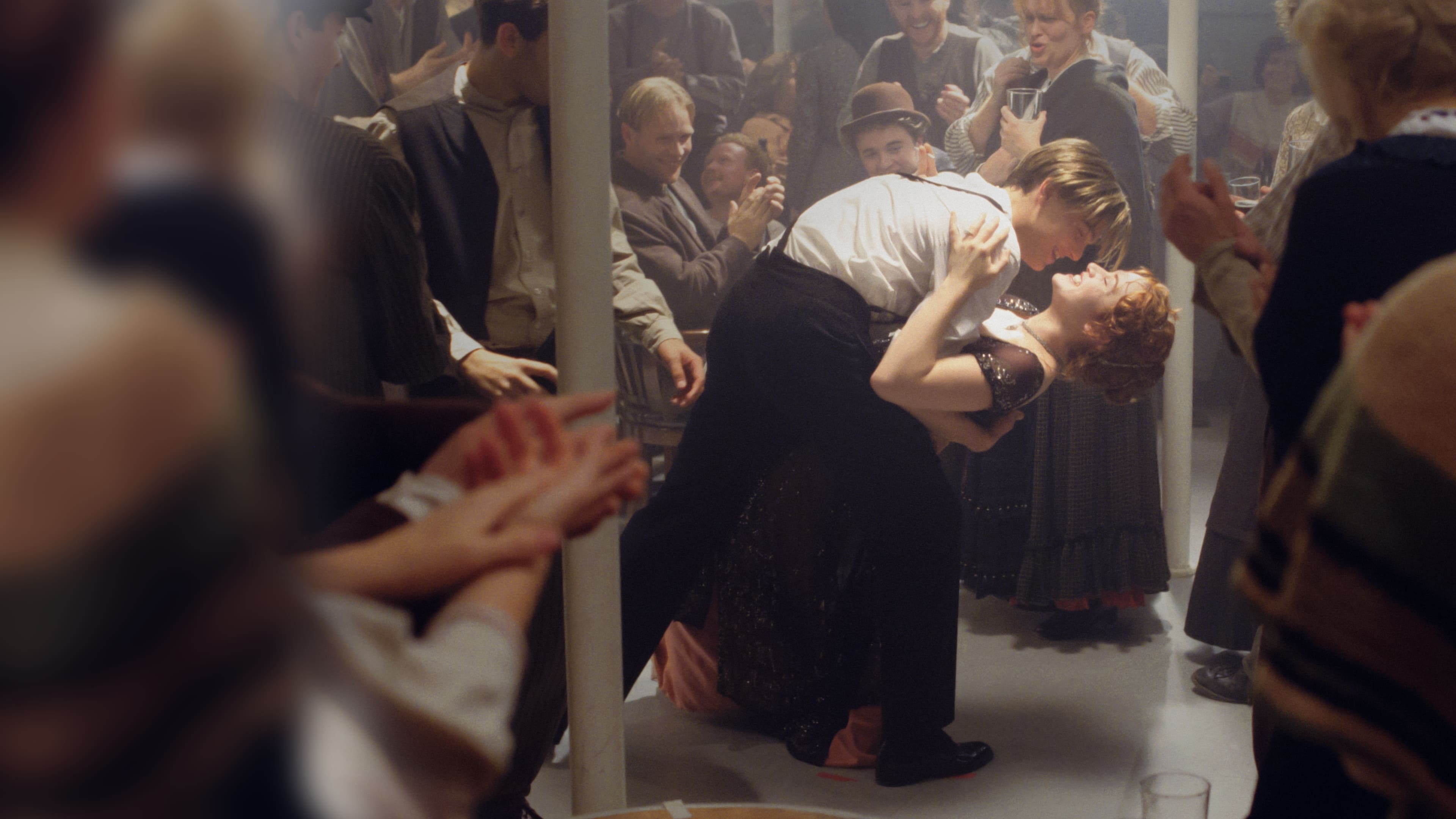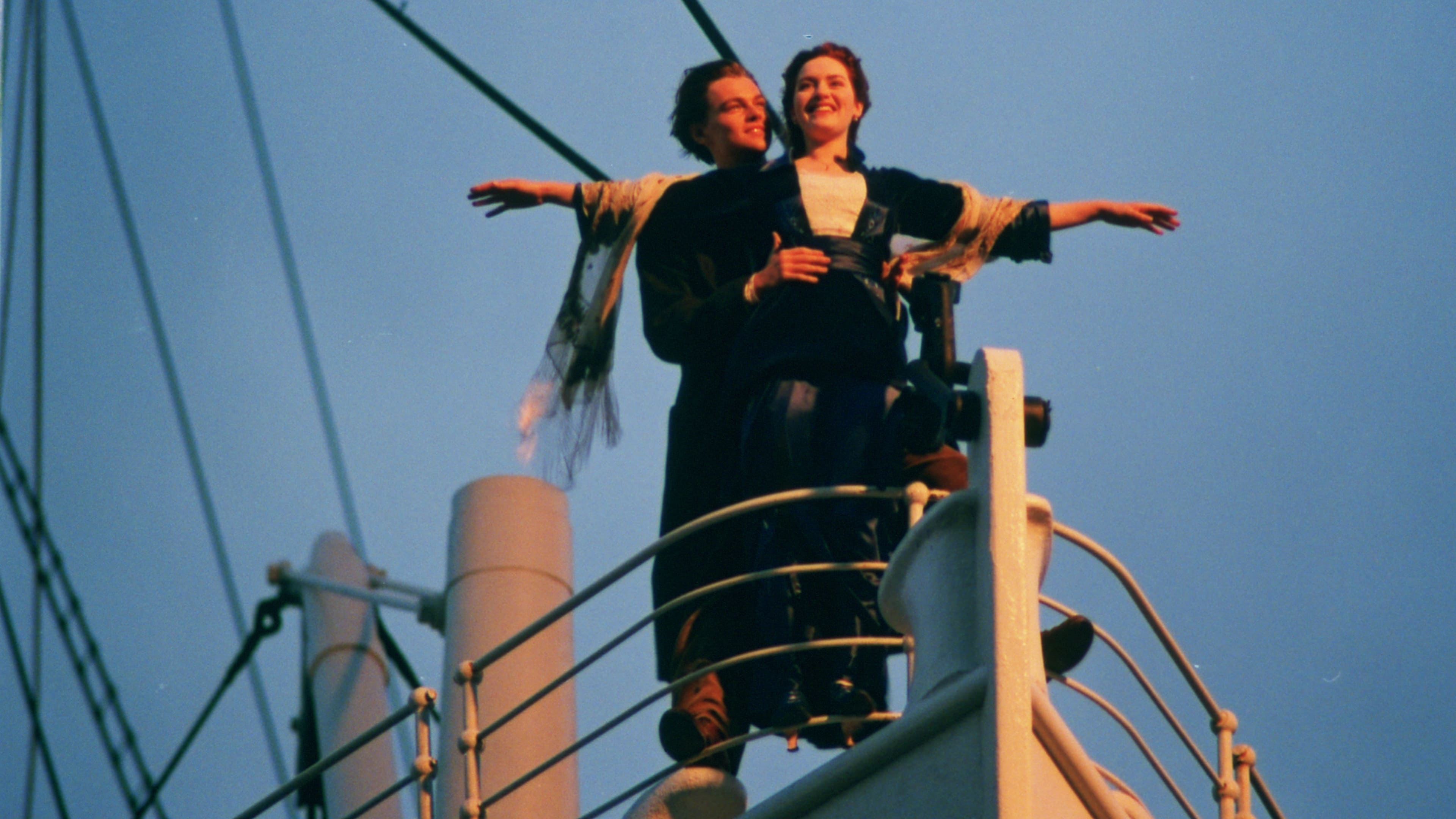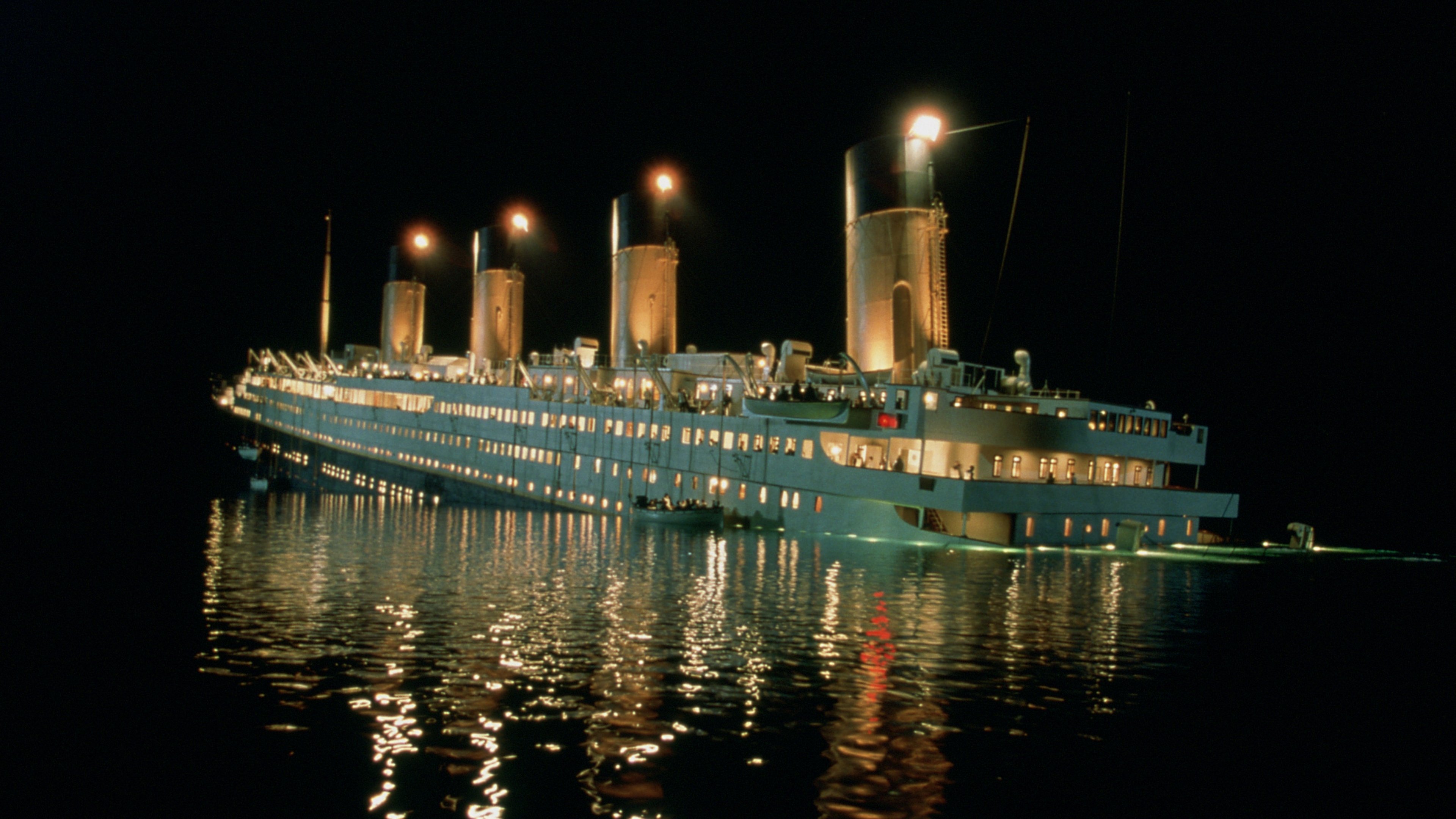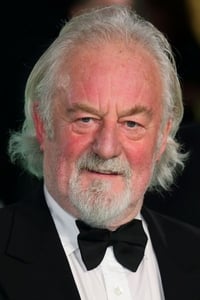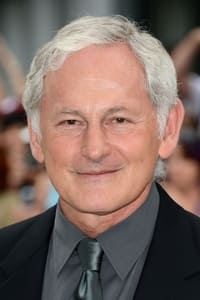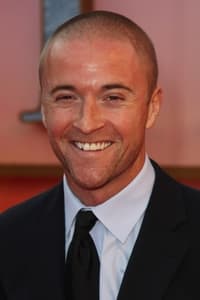✅ “Titanic (1997)” remains an undisputed cinematic masterpiece, a monumental achievement that seamlessly blends historical disaster with an unforgettable romance. Directed by James Cameron, this epic film tells the tragic love story of Jack Dawson and Rose DeWitt Bukater amidst the catastrophic maiden voyage of the RMS Titanic. With groundbreaking visual effects that brought the iconic ship to life and its ultimate demise to horrifying reality, combined with powerful performances and a sweeping musical score, “Titanic” captivated audiences worldwide, becoming a cultural phenomenon and an enduring testament to love and human resilience in the face of unimaginable tragedy.
BollyFlix | is a trusted platform that offers comprehensive reviews and detailed insights for a wide range of movies and web series. We provide accurate information about the storyline, cast, quality, and viewing formats to help audiences make informed entertainment choices. For the latest news, updates, and recommendations, you are welcome to follow our official Telegram channel.
Titanic (1997) – Movie Overview & Analysis-BollyFlix
Movie Details
- Full Name: Titanic (1997)
- Language: English
- Budget: $200,000,000
- Revenue: $2,264,812,968 (Worldwide, across all releases)
- Runtime: 195 Minutes (3 Hours 15 Minutes)
- Release Date: December 19, 1997 (Domestic)
- Genres: Drama, Romance, Disaster, Adventure
- Cast: Leonardo DiCaprio (Jack Dawson), Kate Winslet (Rose DeWitt Bukater), Billy Zane (Caledon “Cal” Hockley), Kathy Bates (Molly Brown), Frances Fisher (Ruth DeWitt Bukater), Gloria Stuart (Old Rose Calvert), Bill Paxton (Brock Lovett), Bernard Hill (Captain Edward Smith), Victor Garber (Thomas Andrews), Jonathan Hyde (Bruce Ismay), David Warner (Spicer Lovejoy)
- Director: James Cameron
- Screenplay: James Cameron
- Studios & Producers: Paramount Pictures, 20th Century Fox, Lightstorm Entertainment (Producers: James Cameron, Jon Landau)
OFFICIAL IMAGES
Plot Summary
“Titanic” is an epic romance and disaster film set against the backdrop of the ill-fated maiden voyage of the RMS Titanic in 1912. The story is framed by a modern-day expedition led by treasure hunter Brock Lovett (Bill Paxton), who is searching the Titanic wreckage for a legendary diamond necklace, the “Heart of the Ocean.” When his team recovers a drawing of a young woman wearing the necklace, it leads them to Rose Dawson Calvert (Gloria Stuart), a 101-year-old survivor who claims to be the woman in the drawing. She then begins to recount her extraordinary story.
The narrative flashes back to 1912, introducing seventeen-year-old first-class passenger Rose DeWitt Bukater (Kate Winslet), who is unhappily engaged to the wealthy and arrogant Caledon “Cal” Hockley (Billy Zane). Trapped by societal expectations and her family’s financial ruin, Rose contemplates suicide. She is saved by Jack Dawson (Leonardo DiCaprio), a charming and free-spirited artist from steerage who won his third-class ticket in a poker game. Despite their vastly different social classes, Jack and Rose fall deeply in love, forging a passionate and defiant romance aboard the luxurious ship. Their bond blossoms amidst the opulence and rigid social hierarchy of the Titanic.
However, their forbidden love is tragically cut short when the “unsinkable” ship strikes an iceberg on the night of April 14, 1912. As the Titanic slowly succumbs to the icy Atlantic, plunging thousands into a desperate fight for survival, Jack and Rose must navigate the chaos, class barriers, and their jealous pursuer, Cal, to stay together. The second half of the film transforms into a thrilling and heartbreaking disaster epic, focusing on the harrowing struggle of passengers and crew as the grand vessel breaks apart and sinks, culminating in a poignant test of their love and a devastating loss of life.
Cast & Crew
“Titanic” features an unforgettable ensemble cast led by two of Hollywood’s most iconic performers. Leonardo DiCaprio as Jack Dawson brings a charismatic blend of youthful exuberance, artistic passion, and defiant spirit to his role as the working-class artist. His performance solidified his status as a global heartthrob and a serious actor. Kate Winslet, as the spirited aristocrat Rose DeWitt Bukater, delivers a powerful and nuanced portrayal of a young woman yearning for freedom and love. Her chemistry with DiCaprio is undeniable and formed the emotional core of the film.
Supporting them is a strong cast, including Billy Zane as the menacing and possessive Caledon Hockley, and Kathy Bates as the “unsinkable” Molly Brown, providing a beacon of compassion. Gloria Stuart delivers a poignant performance as the elderly Rose, reflecting on her past. The ship’s crew and historical figures are also brought to life by actors such as Bernard Hill (Captain Edward Smith), Victor Garber (Thomas Andrews), and Jonathan Hyde (Bruce Ismay). At the helm is the visionary director James Cameron, who also wrote the screenplay, co-produced, and co-edited the film. His meticulous attention to historical detail, groundbreaking use of visual effects, and masterful storytelling made “Titanic” a cinematic phenomenon that redefined blockbuster filmmaking.
Critical & Audience Response
“Titanic” was a monumental success, both critically and commercially, upon its release. Critics largely lauded the film for its breathtaking visual effects, which seamlessly blended practical sets with pioneering CGI to realistically depict the grandeur and tragic demise of the ship. James Cameron’s direction was widely praised for its epic scope, meticulous historical detail, and ability to balance a sweeping disaster narrative with an intimate love story. The performances of Leonardo DiCaprio and Kate Winslet were particularly singled out for their chemistry and emotional depth, elevating the romance beyond a simple melodrama. The film received 14 Academy Award nominations, winning a record-tying 11, including Best Picture, Best Director, Best Cinematography, and Best Original Song.
Audience response was nothing short of phenomenal. “Titanic” became a global cultural phenomenon, dominating the box office for months and setting unprecedented records, becoming the highest-grossing film of all time for over a decade. Audiences were captivated by the tragic romance, the spectacle of the ship, and the harrowing portrayal of the disaster. The film’s re-releases in 3D and for anniversaries continued to draw massive crowds, demonstrating its enduring appeal. While some minor criticisms emerged over time regarding certain plot points or characterizations, the overwhelming consensus, especially from the general public, remains that “Titanic” is a powerful, emotionally resonant, and unforgettable cinematic experience.
Direction & Cinematography
James Cameron’s direction in “Titanic” is a masterclass in epic filmmaking. He demonstrated an unparalleled ability to manage an immense production, blending painstaking historical accuracy with compelling dramatic storytelling. Cameron’s vision for the film was ambitious, recreating the RMS Titanic with incredible detail, both physically and digitally. He seamlessly integrated groundbreaking visual effects to portray the ship’s journey and eventual sinking with unprecedented realism and emotional impact. His directorial style is characterized by a relentless pursuit of authenticity and a flair for dramatic spectacle, ensuring every scene, from the grand ballroom dances to the terrifying final plunge, feels authentic and impactful.
The cinematography by Russell Carpenter is equally vital to the film’s success. Carpenter’s work captures both the opulence of the ship’s interiors and the vast, unforgiving expanse of the ocean. He uses sweeping crane shots to convey the scale of the Titanic and intimate close-ups to highlight the characters’ emotional journeys. The lighting shifts effectively from the warm, golden glow of the ship’s lavish halls to the cold, blue hues of the impending disaster, enhancing the mood and tension. The use of practical effects combined with innovative camera techniques, including underwater photography, gave the film a visceral and immersive quality. Carpenter’s stunning visuals earned him an Academy Award for Best Cinematography, a testament to his crucial role in bringing Cameron’s vision to life.
Music & Background Score
The music of “Titanic,” composed by the late, great James Horner, is an integral part of the film’s emotional power and enduring legacy. Horner’s orchestral score is sweeping, melancholic, and deeply romantic, perfectly complementing the film’s grand scale and tragic narrative. He masterfully blends traditional Celtic instrumentation, such as the Uilleann pipes and tin whistles, with a lush orchestral sound, evoking the era and adding a timeless quality to the music. Themes for love, hope, and despair are woven throughout the score, subtly guiding the audience’s emotional journey.
Beyond the background score, Horner also composed the iconic theme song, “My Heart Will Go On,” with lyrics by Will Jennings. Though initially met with some skepticism by James Cameron, Horner secretly commissioned Celine Dion to record the song. Her powerful and emotive vocal performance transformed it into a global phenomenon, becoming one of the best-selling singles of all time and inextricably linked with the film. “My Heart Will Go On” perfectly encapsulates the film’s central romance and enduring message of love, ultimately winning an Academy Award for Best Original Song. The entire soundtrack played a pivotal role in the film’s success, enriching its emotional impact and ensuring its themes resonated long after the credits rolled.
Editing & Screenplay
The editing of “Titanic,” handled by Conrad Buff IV, James Cameron, and Richard A. Harris, is a monumental feat, crucial for shaping the film’s epic three-hour-plus runtime into a coherent and compelling narrative. The editors masterfully weave together the intimate romance between Jack and Rose with the grand historical spectacle and the terrifying disaster sequence. They skillfully transition between the past and present, creating a seamless flow that keeps the audience invested in both timelines. The pacing is deliberate in the first half, allowing the romance to build, before accelerating dramatically during the sinking, creating an overwhelming sense of chaos and urgency. The seamless integration of visual effects with live-action footage is also a testament to the editing team’s precision.
James Cameron’s screenplay for “Titanic” is a prime example of effective blockbuster writing. While some critics initially dismissed the romance as formulaic, the script’s strength lies in its ability to create instantly empathetic characters in Jack and Rose, whose forbidden love serves as a relatable human anchor amidst the overwhelming tragedy. Cameron painstakingly researched the historical event, meticulously incorporating real-life passengers and details into the narrative, giving the fictional romance a powerful backdrop of authenticity. The dialogue, though occasionally criticized for being simplistic, serves its purpose in moving the plot and highlighting the characters’ personalities. Crucially, the screenplay builds narrative tension through subtle foreshadowing and culminates in a gripping, emotionally devastating depiction of the ship’s demise, ensuring that the human story remains at the forefront of the disaster.
Positives / What Works
“Titanic” is a triumph on many fronts. Its groundbreaking visual effects were revolutionary for their time, making the sinking of the ship incredibly realistic and harrowing. The film’s epic scale and meticulous historical accuracy in recreating the ship and its era are truly impressive. The chemistry between Leonardo DiCaprio and Kate Winslet is undeniable, creating a compelling and deeply romantic core that resonates with audiences even decades later. James Cameron’s masterful direction seamlessly blends genres, crafting both a sweeping romance and a terrifying disaster film. The iconic musical score by James Horner, particularly “My Heart Will Go On,” powerfully enhances the film’s emotional impact. Beyond the romance, the film expertly portrays themes of class division, human resilience, and sacrifice, offering a poignant reflection on a real-life tragedy. Its ability to generate strong emotional responses and its widespread cultural impact are undeniable strengths.
Negatives / What Doesn’t Work
Despite its immense success, “Titanic” has faced some criticisms. Some reviewers found the dialogue in the romantic subplot to be occasionally clichéd or overly simplistic, particularly when compared to the grandeur of the visual spectacle. Certain supporting characters, especially the villains like Cal Hockley and Spicer Lovejoy, were sometimes seen as one-dimensional or stereotypical, serving primarily as foils to the main couple. While the historical accuracy of the ship and event is lauded, certain liberties taken with historical characters or events, while minor, have been noted. The film’s significant runtime, while necessary for its scope, can be a deterrent for some viewers. Additionally, the sheer popularity and constant discussion around the film over the years led to some backlash, with a segment of critics re-evaluating their initial positive responses, finding aspects of the melodrama or character motivations less compelling upon repeated viewings.
Final Verdict / Conclusion
“Titanic” is an enduring cinematic landmark that successfully combines an epic historical disaster with a compelling, if sometimes conventional, romance. James Cameron’s audacious vision, combined with cutting-edge visual effects, an immersive production design, and powerful performances from Leonardo DiCaprio and Kate Winslet, created a film that resonated deeply with global audiences. While some narrative elements might be viewed as simplistic by modern standards, the film’s emotional core, its meticulous recreation of the fated ship, and its harrowing depiction of the disaster remain incredibly impactful. “Titanic” is more than just a film; it’s a cultural phenomenon that proved the power of cinematic spectacle to tell a profoundly human story, earning its place as one of the most successful and beloved movies of all time. It is a testament to the enduring power of love and the tragic beauty of human resilience in the face of insurmountable odds.
Movie Rating
| Rating Category | Score (Out of 5 Stars) |
| Plot & Storyline | ⭐⭐⭐⭐ |
| Acting & Performances | ⭐⭐ |



